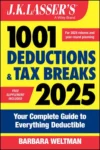Home Sale Exclusion Has Residency Requirement
A couple who bought a home in 2005 moved from it in 2009 due to one spouse’s medical condition. They rented out the home until it was sold in 2015, but the couple didn’t reside in the home at any time between 2009 and 2015. Of the roughly 11 years they owned the home, they used it as a principal residence for five years and as a rental property for six years. They wanted to claim the home sale exclusion for gain on the sale of a principal residence, which is $500,000 on a joint return and $250,000 for singles. This exclusion applies to those who own and use a home as their principal residence for at least two of the five years preceding the date of sale. The IRS moved for summary judgment because the couple failed meet the residency requirement. While they resided in the home for about five years, it wasn’t during the five-year period preceding the date of sale. The Tax Court granted partial summary judgment; it was not disputed that they didn’t live in the home for at least two years prior to the sale (Steven W. Webert, TC Memo 2022-32).
However, the couple maintains that the move was due to health reasons. A taxpayer who fails to satisfy the ownership or use requirement may nonetheless be able to qualify for a reduced exclusion amount if the sale is by reason of a change in place of employment, health, or unforeseen circumstances. Whether the sale in this case was occasioned by health reasons is a matter of fact over which there is a genuine dispute. Without deciding the issue, the Court indicated that even if health problems were the primary reason for the sale, no reduced exclusion amount appeared to be available given the fact that neither spouse lived in the house during the five-year period ending on the date of sale. The denominator of the fraction used to figure the reduced exclusion amount is two years and the numerator is the period of ownership and residential use in the five-year period, so if there is no residential use, the fraction is zero over two, and no exclusion is allowed.
Depreciation
Writing off the cost of depreciable property over a period of years, usually its class life or recovery period specified in the tax law.



